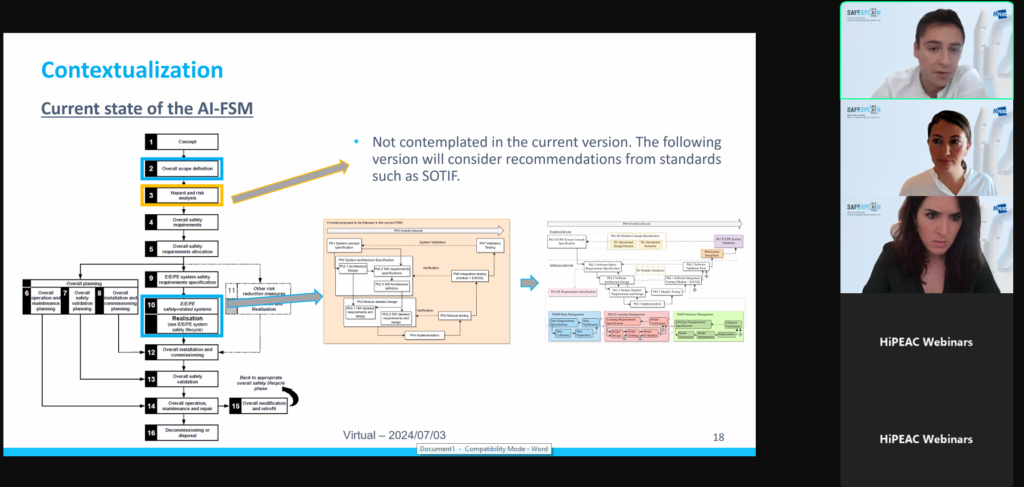
On 4 July 2024, speakers from IKERLAN shared an in-depth look into the SAFEXPLAIN project developments in AI-Functional Safety Management (FSM) methodology. Dr Irune Yarza and Dr Javier Fernández Muñoz guided the 33 participants from industry, research institutes and academia through the HiPEAC-hosted webinar on, “Towards functional safety managemet for AI-based critical systems”. The webinar provided attendees with a comprehensive understanding of the challenges and opportunites associated with integrating AI into safety-critical systems, while also offering practical insights and strategies for ensuring the continued safety and reliability of such systems.
The webinar began with an overview of the SAFEXPLAIN project by Dr Yarza. She explained the goal of the project and explained how the AI-FSM management fit into the project framework.
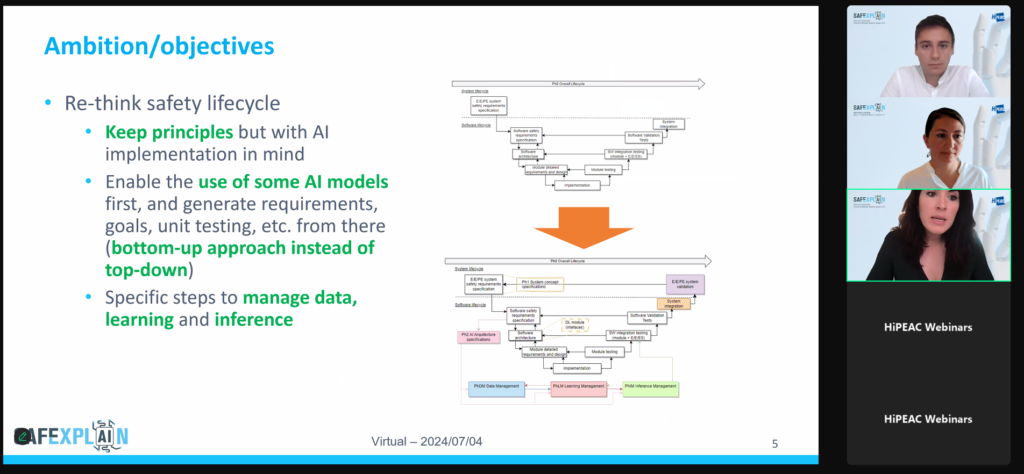
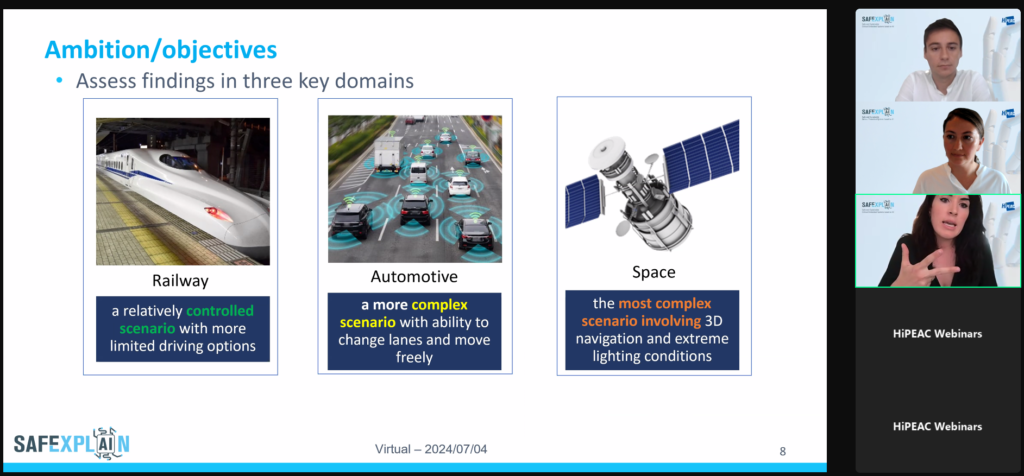
The webinar continued with an in-depth look into the AI-FSM methodology developed, including details on each step of the methodology, where to find it and how it has been employed and tested thus far.
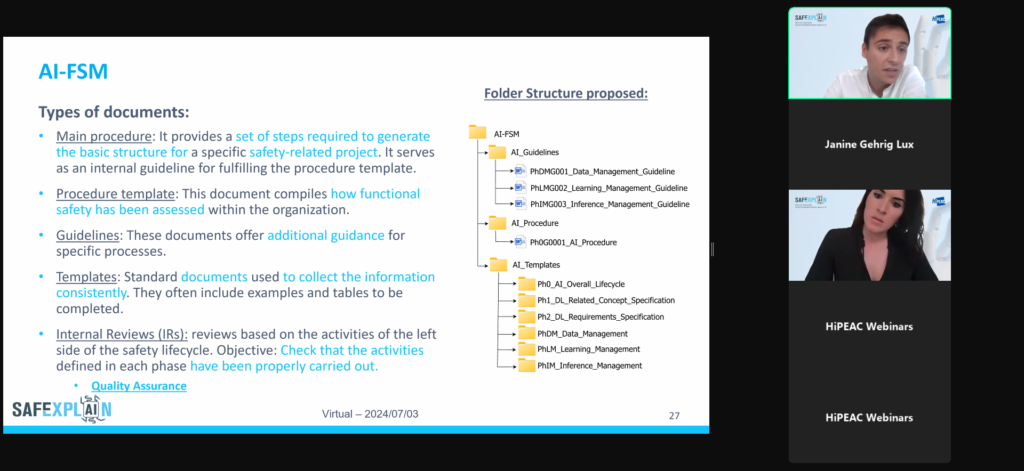
AI-FSM refers to all essential activities to be performed throughout the functional safety lifecycle phases to avoid systematic errors in the development of AI constituents. It is an annex to traditional FSM to be employed when a safety-critical systems involves the use of AI. AI-FSM maps the content of the AI development process with the traditional safety development process.
It includes a main procedure, procedure template, guidelines, templates and internal reviews.
The railway application domain example was shared during the presentation. In this example, a particular case was detailed where a detected object on the railway track must be analysed to dictate the actions the train should take.
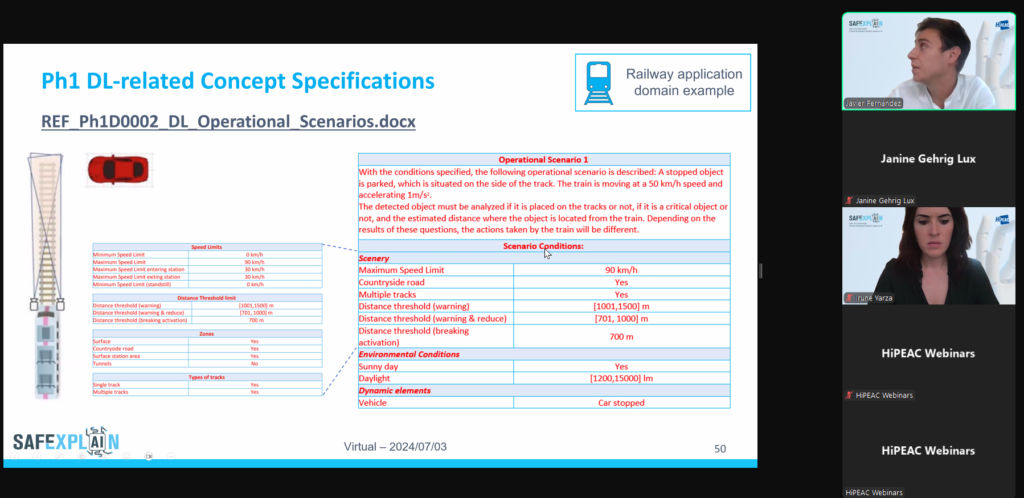
More information on the AI-FSM methodology developed by IKERLAN within the framework of the SAFEXPLAIN project can be found here.
Missed the webinar?

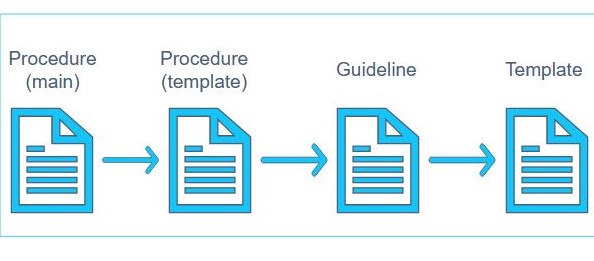

Watch the 2nd webinar in our webinar series: Explainable AI for systems with functional safety requirements.
Learn more about the speakers


Dr Irune Yarza is an Industrial Electronic and Automation Engineer by the University of Deusto (Spain), master’s in advanced electronic systems by the ETSI in Bilbao (Spain), and Ph.D. in Computer Science by the University of Oldenburg (Germany).
She joined IKERLAN as a researcher in 2015, becoming part of the Cybersecure and Dependable Embedded Systems area. With her participation in European projects, her main research activity focuses on functional safety, and she has been recently delved into AI-based safety-critical embedded systems.
Additionally, she has participated in various R&D projects in the field of real-time safety-critical embedded systems, mainly in the lift and automotive sectors. She holds the Functional Safety Engineer certification from TÜV Rheinland according to the IEC-61508 and ISO-26262 standards.
Dr Javier Fernández Muñoz received his Ph.D. in Computer Architecture at the Universitat Politecnic de Catalunya (Spain) in collaboration with the Barcelona Supercomputing Center and the Ikerlan Technological Research Center.
His main research topics are functional safety, artificial intelligence, reliability, and high-performance embedded computing platforms. He is currently working at Ikerlan in the Cybersecurity and Dependability team.